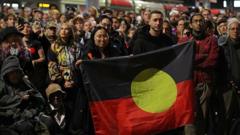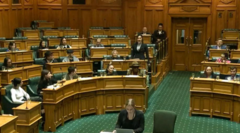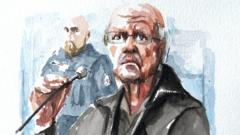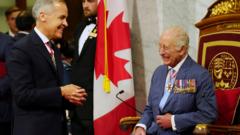Senator Thorpe's protest during the King's visit sparks fierce debate over representation and the legacy of colonization.
Australian Senator Lidia Thorpe Censured for Heckling King Charles
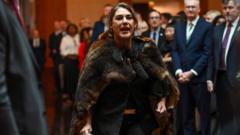
Australian Senator Lidia Thorpe Censured for Heckling King Charles
The censure highlights deep divisions in Australia regarding colonial history and Indigenous rights.
Senator Lidia Thorpe of the Aboriginal community faced censure by Australian lawmakers after her protest against King Charles during his visit to Canberra's Great Hall last month. The Senate passed the censure, which noted Thorpe's actions were “disrespectful and disruptive,” by a vote of 46-12, highlighting lawmakers' "profound disapproval." Thorpe had shouted remarks like "you are not my King" and "this is not your land" right after the King's address, aiming to draw attention to the consequences of British colonization.
Despite the censure being a symbolic gesture with no legal repercussions, Thorpe expressed her frustration over being denied the opportunity to respond due to a flight delay. "The British Crown committed heinous crimes against the first peoples of this country... I will not be silent,” she told reporters after the Senate vote. Her actions, while criticized by many from different political backgrounds and some prominent Aboriginal leaders, received praise from activists who believed it brought attention to the ongoing struggles faced by Australia's Indigenous populations.
During the King's visit, which lasted five days and included appearances by Queen Camilla, he was met with warm receptions from many Australians. Prime Minister Anthony Albanese acknowledged the mixed feelings within the nation, stating, "You have shown great respect for Australians, even during times when we have debated the future of our own constitutional arrangements and the nature of our relationship with the crown."
Thorpe's strong advocacy for Indigenous rights has made headlines throughout her career, especially evident during her swearing-in ceremony in 2022 when she labeled Queen Elizabeth II a colonizer. The past year saw a failed proposal for constitutional recognition of Aboriginal and Torres Strait Islander peoples in a referendum known as the Voice, which faced significant political pushback. Even though data indicates a majority of Indigenous Australians voted 'Yes,' there was considerable dissent within the community, with Thorpe emerging as a prominent figure in the opposition to the proposal.
Despite the censure being a symbolic gesture with no legal repercussions, Thorpe expressed her frustration over being denied the opportunity to respond due to a flight delay. "The British Crown committed heinous crimes against the first peoples of this country... I will not be silent,” she told reporters after the Senate vote. Her actions, while criticized by many from different political backgrounds and some prominent Aboriginal leaders, received praise from activists who believed it brought attention to the ongoing struggles faced by Australia's Indigenous populations.
During the King's visit, which lasted five days and included appearances by Queen Camilla, he was met with warm receptions from many Australians. Prime Minister Anthony Albanese acknowledged the mixed feelings within the nation, stating, "You have shown great respect for Australians, even during times when we have debated the future of our own constitutional arrangements and the nature of our relationship with the crown."
Thorpe's strong advocacy for Indigenous rights has made headlines throughout her career, especially evident during her swearing-in ceremony in 2022 when she labeled Queen Elizabeth II a colonizer. The past year saw a failed proposal for constitutional recognition of Aboriginal and Torres Strait Islander peoples in a referendum known as the Voice, which faced significant political pushback. Even though data indicates a majority of Indigenous Australians voted 'Yes,' there was considerable dissent within the community, with Thorpe emerging as a prominent figure in the opposition to the proposal.




